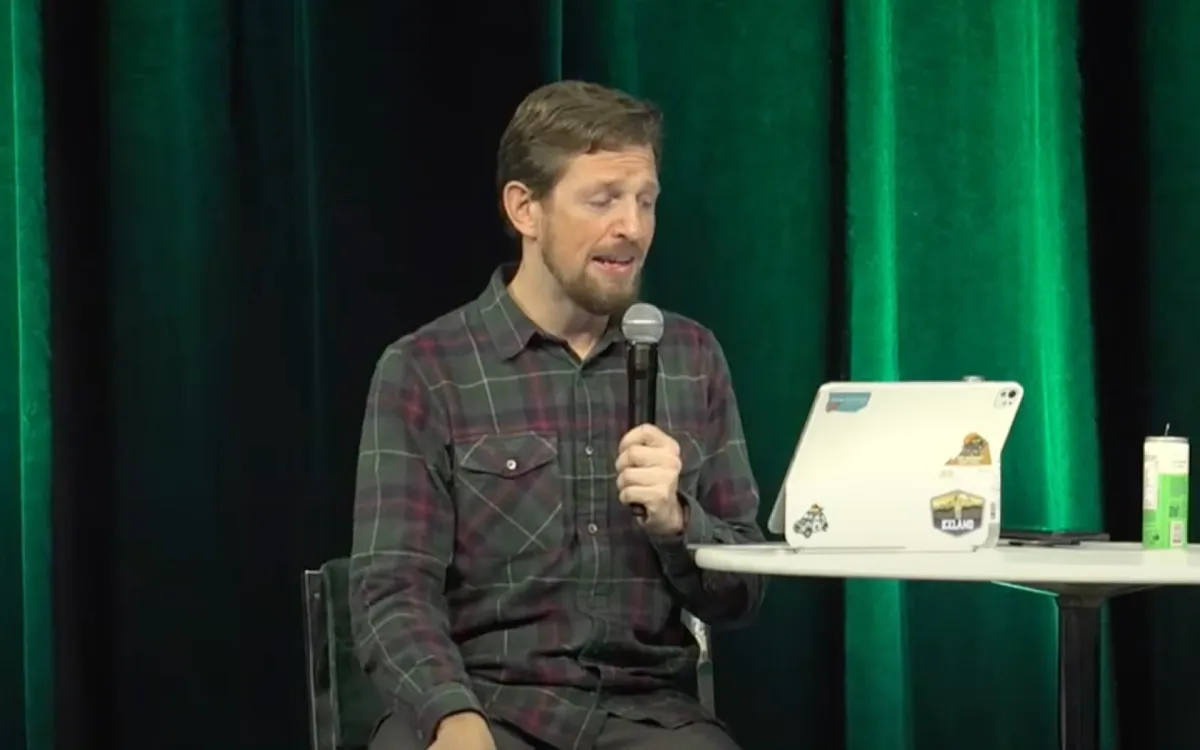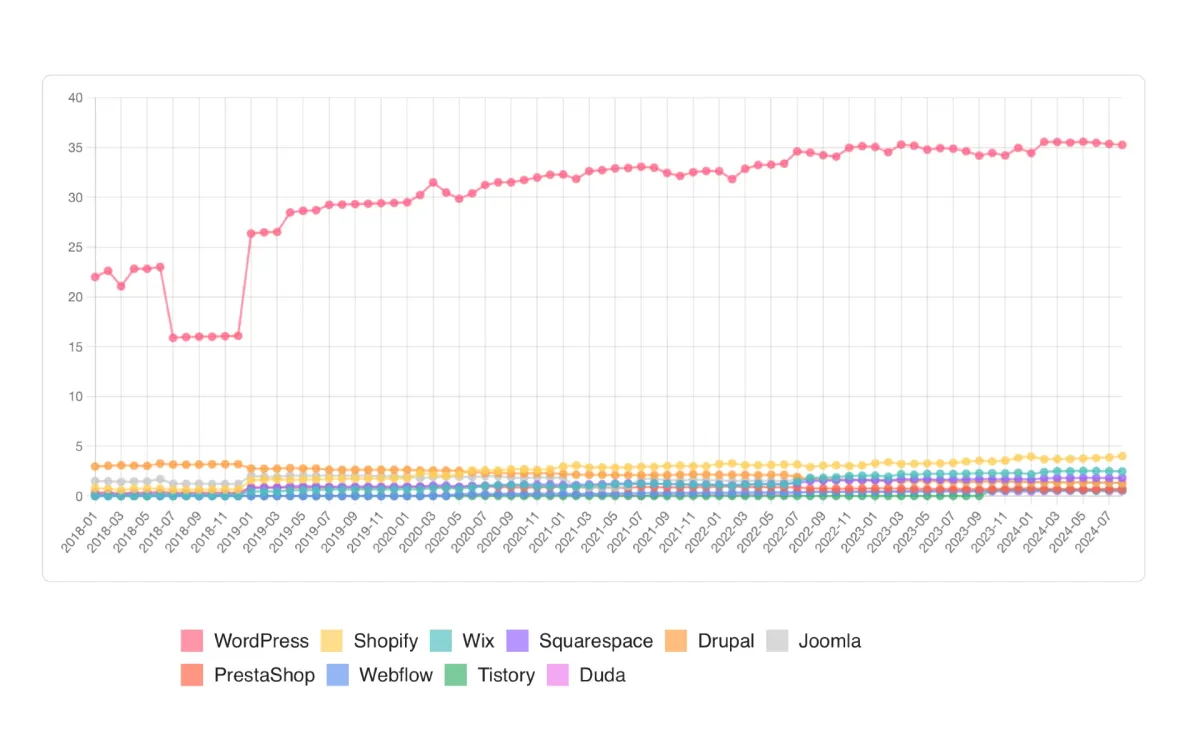
On September 21, 2024, WordPress co-founder Matt Mullenweg sparked controversy in the WordPress community with his keynote speech at WordCamp US in Portland, Oregon. Mullenweg used the high-profile platform to criticize web hosting company WP Engine, accusing them of exploiting the open source WordPress project without adequately contributing back to its development.
WordCamp US is the largest annual gathering for the WordPress community in North America, bringing together developers, content creators, and business owners who use the popular content management system. This year's event, which ran from September 19-21, was expected to be a celebration of WordPress's growth and future plans. However, Mullenweg's closing keynote took an unexpected turn when he focused on what he perceives as threats to the open source ecosystem.
According to attendees, Mullenweg began his presentation by reading aloud a blog post he had published days earlier titled WordCamp US & Ecosystem Thinking. The post discussed the importance of supporting companies that contribute to open source projects. He then introduced a new section called How Private Equity Can Hollow Out and Destroy Open Source Communities, where he specifically called out WP Engine and its private equity backer, Silver Lake Capital.
Matt Mullenweg's keynote at WordCamp US 2024
Mullenweg claimed that WP Engine, one of the largest WordPress hosting providers, was not contributing enough resources back to WordPress core development despite generating significant revenue from the platform. He stated, "Imagine you're running a company and that some of your budget goes to R&D, and then how great it would be if you could get all of the software for free, don't spend a single dollar on it, or spend 40 hours a week, call that $100,000 a year, and you can make $450,000,000 per year off it, that'd be pretty sweet right?"
 PPC LandLuís Rijo
PPC LandLuís Rijo
The WordPress co-founder went on to suggest that WP Engine's practices were harming companies like his own, Automattic, which he says invests heavily in WordPress development. "Now those companies are fighting with one hand tied behind their back," Mullenweg stated.
The comments were particularly striking given that WP Engine was a "Super Admin" level sponsor of WordCamp US, having paid $75,000 for prominent placement at the event. Mullenweg even suggested that this might be the last WordCamp where WP Engine would be present.
Reaction from the audience was mixed, with sparse applause following Mullenweg's remarks. During the subsequent Q&A session, one attendee received significant applause when they suggested that Mullenweg's approach felt like "punching down" and that a more positive message focusing on community growth would have been more effective.
In the days following the conference, the controversy has continued to unfold online. On September 22, Mullenweg published a follow-up post on the official WordPress.org blog titled WP Engine is not WordPress. In this post, he provided a specific technical example of how he believes WP Engine is compromising the WordPress user experience to cut costs.
Mullenweg claimed that WP Engine disables WordPress's built-in revision system by default, which he argues is a core feature for protecting user content. "WP Engine turns this off. They disable revisions because it costs them more money to store the history of the changes in the database, and they don't want to spend that to protect your content," Mullenweg wrote.
The WordPress co-founder's public criticism of a major industry player has sparked intense debate within the WordPress community. Many developers and business owners are discussing the broader implications for the open source model and the responsibilities of companies that profit from free software.
Supporters of Mullenweg argue that his concerns about the sustainability of open source projects are valid. They point out that if large companies don't contribute back to the projects they rely on, it could eventually lead to a decline in the quality and innovation of open source software.
Critics, however, suggest that Mullenweg's approach was inappropriate for a keynote speech at a community event. Some have questioned whether his comments violated the WordCamp code of conduct, which emphasizes respect and inclusivity. Others have pointed out potential conflicts of interest, given that Mullenweg's company Automattic operates WordPress.com, a direct competitor to WP Engine in the hosting space.
The controversy has also raised questions about how contributions to open source projects should be measured and valued. While Mullenweg focused on direct code contributions and financial support, others in the community argue that hosting companies provide value by making WordPress accessible to a broader audience and by supporting the ecosystem in other ways, such as sponsoring events like WordCamp.
As of September 23, 2024, WP Engine has not publicly responded to Mullenweg's comments. The company's last public statement related to WordPress contributions was on their website, where they claim to contribute 40 hours per week to the WordPress project through their "Five for the Future" pledge.
This incident highlights ongoing tensions in the open source world between commercial interests and community values. As WordPress continues to power over 40% of websites globally, the debate over how to balance profitability with giving back to the open source community is likely to intensify.
The WordPress community now faces challenging questions about its future direction:
- How should contributions to open source projects be measured and recognized?
- What responsibilities do companies have when they profit from free, open source software?
- How can the WordPress project ensure its long-term sustainability while maintaining an open ecosystem?
As the dust settles from WordCamp US 2024, many in the WordPress world are calling for more constructive dialogue on these issues. The coming months will likely see continued discussion as the community grapples with balancing commercial success and open source ideals in an increasingly complex digital landscape.
Key Facts
- WordCamp US 2024 took place from September 19-21 in Portland, Oregon.
- Matt Mullenweg delivered the closing keynote on September 21, 2024.
- WP Engine was a "Super Admin" sponsor of the event, contributing $75,000.
- Mullenweg accused WP Engine of not adequately contributing to WordPress development.
- WP Engine claims to contribute 40 hours per week to the WordPress project.
- The WordPress open source project powers over 40% of websites globally.

